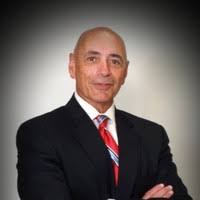Dozens of experienced securities lawyers and prosecutors usually apply for the prestigious and influential job of regional director of the U.S. Securities and Exchange Commission’s Fort Worth office when it comes available, which is not that often.
The SEC regional director operates as the region’s top corporate cop, policing hundreds of publicly traded businesses – including three of the 10 largest in the U.S. – and more than 1,000 financial brokers, dealers, investment officers and advisors with more than $2 trillion of assets under management.
The mission of the position is heroic: put financial fraudsters out of business, protect everyday investors from scams and shams and hold corporate America accountable.
Needless to say, the job of SEC regional director is considered the single most important federal regulatory position to most Texas businesses and has been one of the most sought after jobs in the federal government.
Until now.
The number of people who applied for the Fort Worth-based job since Shamoil Shipchandler departed the office seven weeks ago can be counted on one hand, according to current and former SEC officials.

The reason, they say, is simple: the SEC’s enforcement budget has been slashed, staffing in the Fort Worth office has been dramatically reduced and the ability to investigate and bring high-profile, complex cases against corporations and financial institutions involved in illegal and fraudulent conduct has been significantly weakened.
And there is a strong belief in the white-collar criminal law community that the Trump administration will do nothing to improve the situation for the next two years.

“This is one of the most important positions regarding business in Texas, but who wants the pressure of running an office with so much responsibility that is down 30 percent of its enforcement lawyers?” says Toby Galloway, a shareholder at Winstead and former chief trial counsel at the SEC.
“The environment in the office is not good,” Galloway says. “It’s not a fun place to be right now.”
During the past two and a half years, nearly 20 senior level leaders with significant experience in securities enforcement have left the SEC’s Fort Worth office for jobs in the private sector. Because of budget cuts, Shipchandler was not allowed to replace any of those officials.
“The regional director’s job is an extraordinary opportunity, but the next leader definitely faces some pretty significant challenges – the biggest being reduced resources,” Shipchandler told The Texas Lawbook in an interview during his last day in the office.
“The resource issue has to be addressed and fixed,” he said. “There is a lot of money coming into the region and into Texas. Bad people who want to do bad things are going to follow the money and the SEC must have the resources to deal with it.”
The SEC regional director oversees a team of about 140 lawyers, paralegals, accountants and examiners that are supposed to regulate and prosecute wrongdoing at the 815 publicly traded businesses – including 65 Fortune 500 companies – operating in Texas, Oklahoma, Arkansas and Kansas, including Exxon Mobil, Halliburton, AT&T, American and Southwest airlines and Walmart.

Steve Korotash, a partner at Morgan Lewis and former assistant director of enforcement at the SEC, says that the position has always been viewed as one of the premier legal jobs in the country, but he says experienced attorneys who would normally seek the post are not because this is “a difficult time for the Fort Worth office.”
“The enforcement staff is operating at half of its normal staffing level,” Korotash says. “All the political pressures are still there, but the resources to do the job are not.
“I’m surprised anyone wants the job at all,” he says.
The Texas Lawbook has identified four Texas lawyers – all from Dallas and all white men – reportedly being considered by SEC leaders for the regional director’s job, including:
- Current associate regional director Marshall Gandy, who is over examinations;
- Current assistant director David Reece, who is an enforcement attorney leading Foreign Corrupt Practices Act cases;
- HD Vest Financial Services associate general counsel Eric Chartan, who is a former Bronx County assistant district attorney and currently works with former SEC associate enforcement director David Peavler; and
- Brad Foster, who is a partner at Hunton Andrews Kurth in Dallas who specializes in securities litigation.
Eric Werner, the current associate regional director of enforcement in Fort Worth, reportedly decided against seeking the promotion because he is happy in the position he has now, according to interviews with more than a dozen lawyers who have worked in the SEC’s regional office in Fort Worth.
In the past, the SEC has looked outside the agency to hire regional directors, but that changed during the past year with insiders filling top positions in Atlanta and Denver. The trend bodes well for Gandy and Reece.
Jones Day partner David Woodcock, the SEC’s regional director before Shipchandler, says he is surprised that so few lawyers are seeking the position and he says there may still be a “sleeper candidate” that has applied that no one knows about.
Nearly two-dozen lawyers sought the job in 2011, but SEC leaders surprised everyone when it gave the job to Woodcock, who was previously a securities litigator at Vinson & Elkins in Austin.
“No one knew I had even applied for the position,” Woodcock says.
Amy Osteen, general counsel of Dallas-based Rug Doctor, says the next regional director “needs to be someone who isn’t afraid to take risks.”
“That might mean taking on cases that are difficult to win,” says Osteen, who was a finalist for the regional director’s position in 2015. “Or, deciding not to bring a tough case even when public opinion would demand otherwise. Bottom line, any person filling the regional director role needs to have the strength of character to do the right thing even when it’s hard.”
Korotash says it is important that the next regional director in Fort Worth be “someone who knows how to prioritize [and knows] how to quickly understand the various strengths of individual staff members.”
“Most importantly, the office needs a leader, not a manager, someone who will roll up his sleeves and work, someone who will lead by example, someone who will be focused on the welfare of the staff and not on self-promotion,” he says. “There are current staff members who possess those attributes. Frankly, to go outside the office at this time would likely be a mistake. With all of the headwinds the office is facing, the learning curve is too steep for someone unfamiliar with the agency.”
Barrett Howell, a partner at Katten Muchin in Dallas, agrees that the next SEC regional director faces huge challenges regarding staffing and resources, but he says that the position is “truly a career-changing move” for some white-collar criminal defense attorneys and “can advance a career by 12 or 15 years.”
“We need someone who will be as aggressive in determining whether there is a case as much as aggressive in bringing a case,” Howell says. “SEC cases need to be opened and closed more quickly because an SEC investigation causes a major cloud of uncertainty over a company.”
